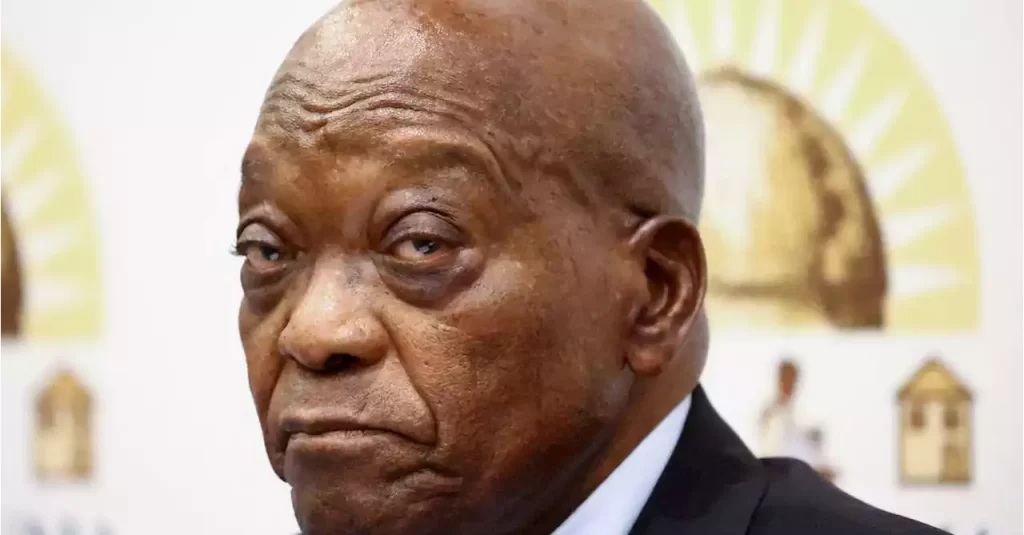In a surprising turn of events, former President Jacob Zuma has been granted special remission and released from prison due to overcrowding concerns in the country’s correctional facilities. The announcement was made by National Commissioner for Correctional Services, Makgothi Thobakgale, earlier today, sparking debates and discussions across the nation.
The decision to grant special remission to Zuma, who was serving a prison sentence for contempt of court, comes against the backdrop of ongoing challenges faced by South Africa’s prison system, including severe overcrowding and strained resources. The move is expected to have far-reaching implications, not only for the correctional services but also for the broader legal and political landscape.
Shortly after the National Commissioner’s announcement, he released a statement which read: “Having studied the judgment of the Supreme Court of Appeal, submissions by interested parties, legal advice(s) and also guided by the Correctional Services Act 111 of 1998, as the national commissioner of the department of correctional services, I have exercised my discretion as per the SCA judgment, in making a decision whether or not to take into account the period served under Community Corrections by the former president, Mr Jacob Zuma.”
He added: “The Supreme Court of Appeal found that the national commissioner’s decision to place Mr Zuma on medical parole was unlawful and unconstitutional. This finding rendered everything done in terms of the said decision null and void. The SCA further stated that once its order in the appeal is handed down — Mr Zuma’s position as it was prior to his release on medical parole will be reinstated. It further stated that, in law, Mr Zuma has not finished serving his sentence, and that he must return to the Estcourt Correctional Centre to do so.
“The Constitutional Court decided to leave the said decision intact. Although the SCA and the high court both consider the decision of the then national commissioner as unlawful, Mr Zuma was not discharged (released), but he was placed under community corrections where he continued serving his sentence, under strict conditions. Parole in SA is a form of punishment which is served by an inmate within the system of community corrections in terms of Chapter VI of the Correctional Services Act of 1998. When Mr Zuma left from a medical hospital upon placement on medical parole, he was continuously under community corrections serving his sentence. He was never a free man with effect from July 8 2021.”
The concept of special remission involves the reduction of an inmate’s sentence as a response to mitigating circumstances such as overcrowding, good behavior, or health issues. While the decision has raised eyebrows and elicited varied reactions, Commissioner Thobakgale stressed that the process followed established legal procedures and guidelines.
Jacob Zuma, a polarizing figure in South African politics, had been serving a prison sentence for failing to appear before a judicial inquiry into allegations of state capture during his presidency. His release on special remission has ignited debates regarding the prioritsation of overcrowding concerns over the rule of law and judicial independence.
Political analysts and legal experts have offered differing perspectives on the matter. Some view the decision as a pragmatic response to the dire conditions within the prison system, while others express concerns about the potential erosion of the judiciary’s authority and the message it sends about accountability.
The announcement also raises questions about the broader implications for other inmates who may be eligible for special remission due to overcrowding.
